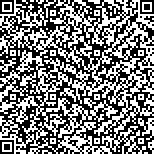| 摘要: |
| 在水温(22±2)℃条件下,采用周期性停食胁迫方法研究鱼幼鱼摄食、生长和消化酶的变化情况。结果表明,饥饿组与对照组的特殊生长率差异性显著(P<0.05);不同停食时间胁迫下,试验组的摄食率和特殊生长率与对照组差异极显著(P<0.01),停食3天鱼幼鱼的食物转化率比对照组高,表明鱼幼鱼具有部分补偿能力;消化酶在不同的组织中变化情况各不相同,饥饿开始后各器官中的蛋白酶、脂肪酶和淀粉酶均下降。随饥饿时间延长,蛋白酶、脂肪酶和淀粉酶出现上升现象,但上升程度各不相同。恢复投喂后各组织中的蛋白酶、脂肪酶和淀粉酶均上升;随恢复投喂时间延长,各试验组中鱼幼鱼各器官组织中的消化酶变化情况也各不相同。 |
| 关键词: 鱼 周期性停食 摄食 生长 消化酶活力 |
| DOI: |
| 分类号: |
| 基金项目:浙江省科技重点攻关项目,2004C12028号 |
|
| THE EFFECT OF PERIODIC STARVATION ON FEEDING, GROWTH AND DIGESTIVE ENZYME ACTIVITY OF MIICHTHYS MIIUY JUVENILE |
|
LUO Hai-Zhong1, SHI Zhao-Hong2, LIU Min-Hai1, CHEN Bo1, YU Hong3, FU Rong-Bing1
|
|
1.Fisheries Institute of Zhoushan of Zhejiang Province,Zhoushan,316000;2.East China Sea Fisheries Research Institute, Chinese Academy of Fisheries Sciences,Shanghai,200090;3.Yellow Sea Fisheries Research Institute, Chinese Academy of Fisheries Sciences,Qingdao,266071
|
| Abstract: |
| Food shortage is often a stress in natural environment to many fish species, causing growth retardation or even death. However, response to the stress differs in species. After the food become available again they would re-gain growth, which is called compensatory growth. In this study, juvenile of Miichthys miiuy was tested for the effect of periodic starvation on feeding, growth, and digestive enzyme activity. At 22±2°C, the juveniles were divided into four groups (S0, S3, S6, and S12), which were starved for 0, 3, 6, l2 days and then fed for 0, 3, 6, l2 days respectively. All individuals were tested in starvation-feeding in 72 days. The results showed that the daily performance of weight growth is significantly different among groups in feed efficiency, feed rate, and specific growth rate. The juvenile M. miiuy is able to develop in partially compensatory manner. Moreover, changes in three digestive enzymes are different too. In early starvation, protease, lipase, and amylase decreased in stomach, intestine, and liver. As the starvation continues, all three enzymes increased at different rates. After re-feed the fish, contents of lipase and amylase rebounded. As the feeding time passed, changes in the content of digestive enzyme in digestive organs were different among five groups. |
| Key words: Miichthys miiuy, Periodic starvation, Feeding, Growth, Digestive enzyme activity |
